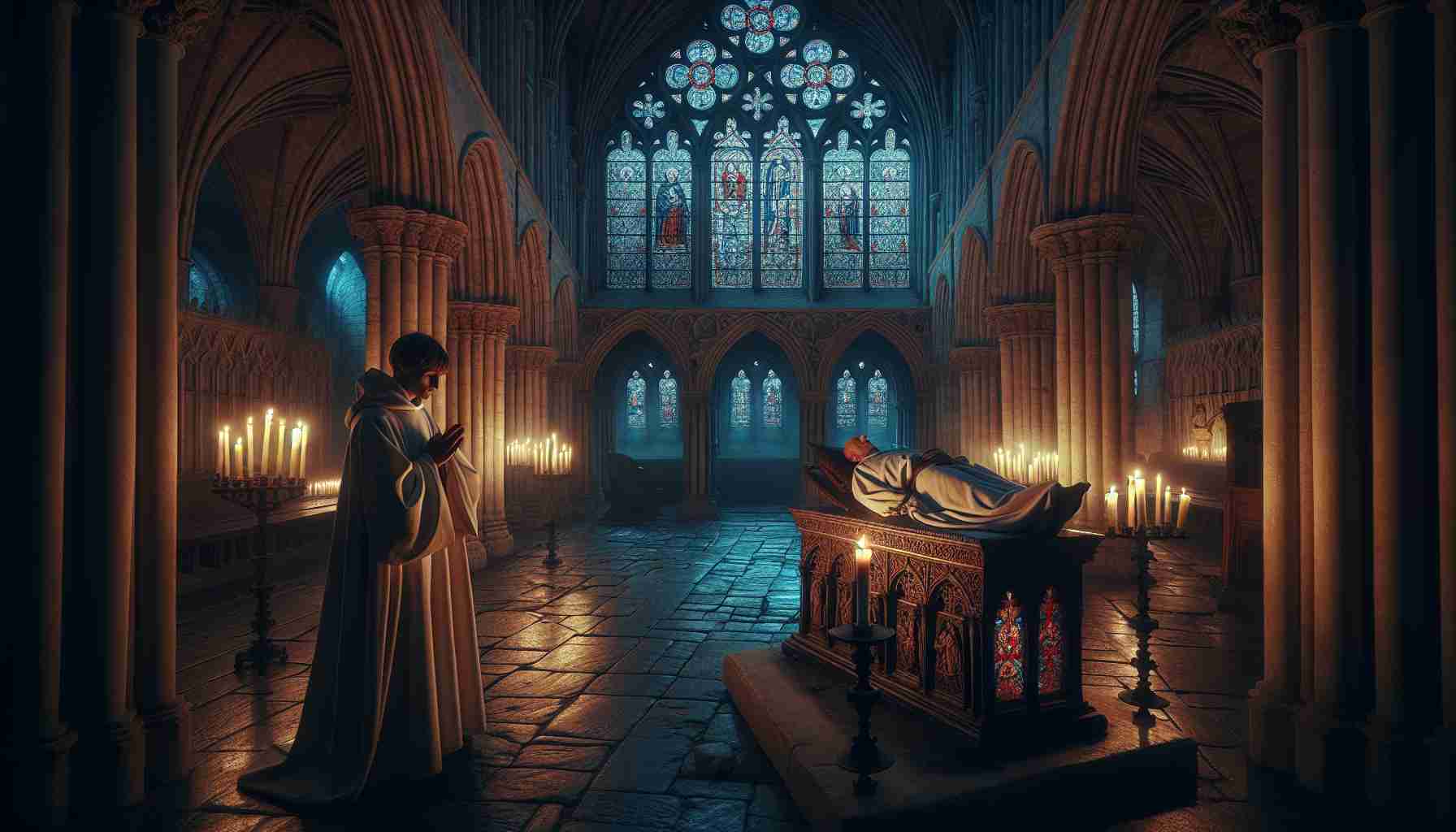

Midwinter in Paris drew her breath in frost. The Seine flowed black beneath low clouds, a serpent sleeping in shadow. Bells tolled from the stone towers of Saint-Germain-des-Prés, not in celebration but solemn mourning—the northern wind folded their dirge into the hearts of the people. King Childebert I, son of Clovis and Clotilde, was dead.
He had ruled from the palatial halls near the edge of the old Lutetian stronghold, where Roman ruins sank beneath rising Frankish stone. In his final days, weakened by fever, Childebert withdrew within the cloistered walls of the abbey he had raised by hand and crown to the glory of God. Saint Germain, bishop and saint, had once secluded himself there in prayer. Now, Childebert laid himself beside that holy soil, awaiting the prayers of the monks he had installed.
Word carried through icy roads to Reims, Tours, and Orléans: the king had surrendered his last breath on December 23, 558. Yet within the abbey, among thick incense and whispered psalms, no sorrow burned hotter than faith.
One could walk the long nave of Saint-Germain-des-Prés and see the stones themselves speak of the king’s devotion. Carved capitals bore twisting vines and lambs; Latin inscriptions crowned the arches. Precious relics were interred near the altar—robes said to belong to Saint Vincent, which Childebert had brought from Zaragoza during war, not as plunder, but as holy treasure.
It was on that same campaign, in lands ruled by Visigoths who followed Arian heresies, that Childebert felt the deepest calling to defend the true faith. His armies swept not merely with sword and shield, but with banner and cross. Through perilous winter marches and bitter resistance, he claimed new lands not only for the Franks, but for Christ. Where the Arians denied the divinity of the Son, the Catholic faith he shielded proclaimed as Psalm 84:11 declared: “For the Lord God is a sun and shield; the Lord bestows favor and honor; no good thing does He withhold from those who walk uprightly.”
Unlike his brothers, whose ambitions decomposed into fratricide and separatism, Childebert sought unity. He had no sons, yet built his legacy into mortar and ritual. Where others spilled blood for inheritance, he planted groves of faith. The bishops he protected spread teaching deeper into Gaul; churches dotted the Merovingian lands like stars unfolding at dusk.
In those hours following his death, ivory candles pooled wax into cracked marble vessels. Brother Athanasius, a novice barely grown from boyhood, stood the midnight watch beside the king’s linen-wrapped body. He had never seen the king alive, only heard of the man who had refused luxuries and sought counsel beside relics instead of courtiers. The abbey’s silence, thick like velvet, pressed on Athanasius’ chest. He recited the psalms, lips dry but resolute.
Outside, peasants lit fires and prayed for the soul of the king who had shielded them; one who fed not just the body, but the spirit. They remembered how plague once gripped a nearby village, and when bishops fled, it was Childebert who carried saints’ bones to bless the sick. A miracle, some said. A gentle rain had fallen, and the fever had broken. Childebert had said nothing, only crossed himself and returned to the Abbey.
Some whispered of visions. That the relic of Saint Vincent glowed the night before Childebert’s death. That an angel had brushed the copper roof. But no spectacle surpassed the truth: a king had chosen to build for the Kingdom not merely in battle, but in belief.
By morning, as the monks sang the Matins, light flared through the frost-kissed stained glass. The sun—absent for days—pierced through panes of blues and reds, casting king’s colors across stone and skin. A dying year, a dying king. Yet faith, flourishing.
His brother, Clotaire, now ruled alone—one Frankish realm at last. For the first time since Clovis, the crown no longer lay split among brothers. Would Clotaire continue his brother’s devotion? Time alone would name that.
But within Saint-Germain-des-Prés, granite had memory. Every arch, every window, every echo of psalms sung in devotion—these stood as Childebert’s testament, living beyond the breath of kings.
Long after crowns corroded and treaties faded, pilgrims would still kneel where Childebert’s tomb once lay, whispering prayers among fading frescoes. Few would remember his wars; fewer still the lines of blood and land. But many would feel what stood eternal—devotion carved into stone, a legacy built not of dominion but of light.
As Psalm 84 had promised, God had withheld no good thing from one who walked uprightly. Childebert’s city swelled, not merely in size but in sanctity. And though his body rested beneath vaulted vaults, his faith marched on, borne anew in every believer called to build for Christ, their stones echoing forever.